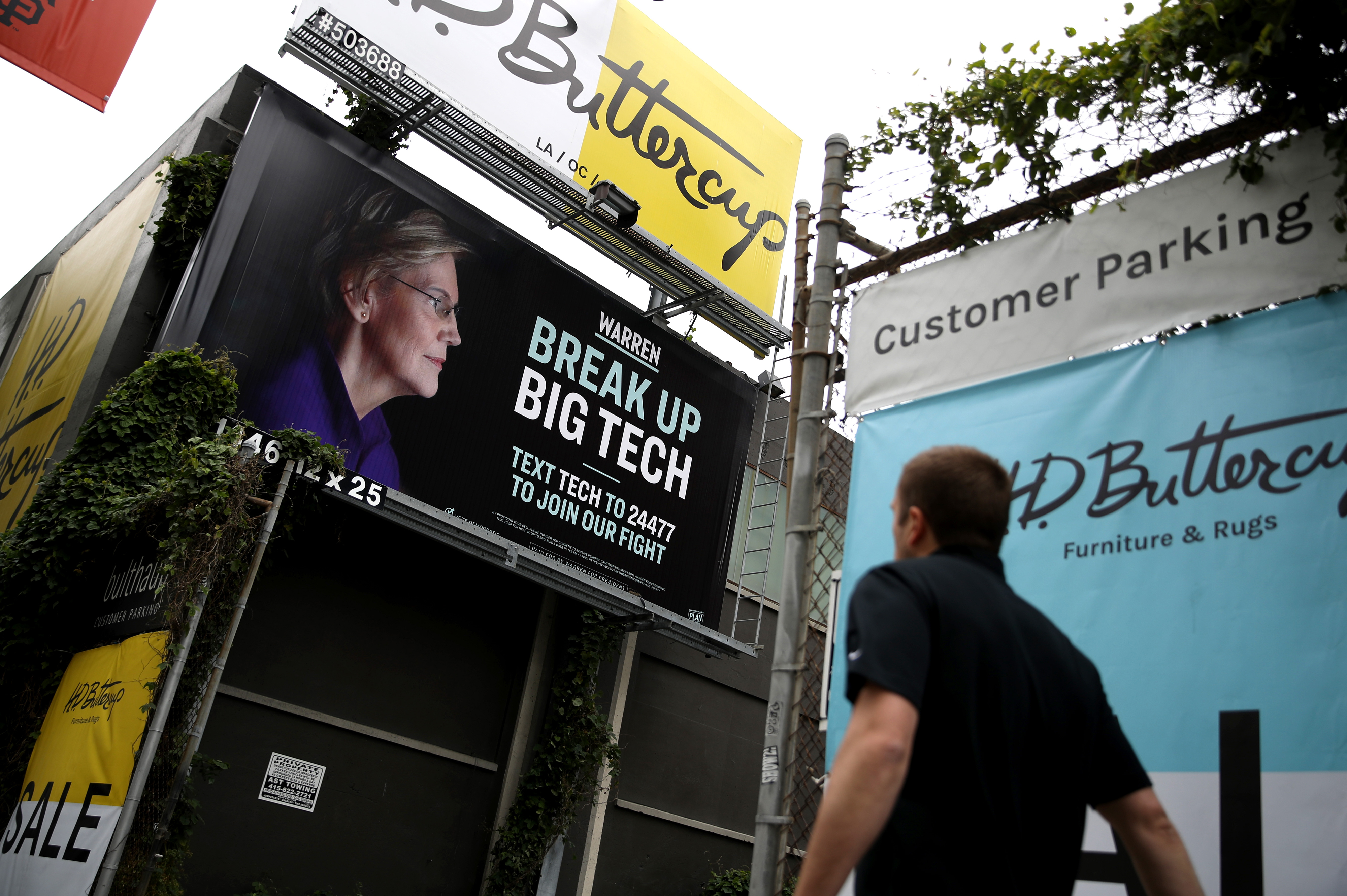Breaking up Big Tech will be really hard to do—here’s why

The news: Amazon, Apple, Google, and Facebook are facing unprecedented scrutiny in their own backyard. The US Department of Justice (DoJ) and the Federal Trade Commission (FTC) are preparing antitrust investigations into the companies, and plan to divvy up the work. As the news emerged, the firm’s share prices were hammered, a clear signal that Wall Street believes the Feds mean business.
Congress also plans to put the companies under the microscope. The Judiciary Committee of the House of Representatives said it's launching a wide-ranging investigation of the market power of the tech giants.
Playing politics: The obvious question is: why now? The European Union has been sounding the alarm about Big Tech’s outsized power for years—and imposing massive fines on Google in particular for anticompetitive behavior.
The most plausible answer is American politics. Some prominent Democrats, including senator and presidential candidate Elizabeth Warren, have been calling loudly for tech giants to be broken up to stop them harming consumers’ interests. With a presidential election on the horizon, the Republicans likely want to be seen as tough on Big Tech, too. There’s also a widespread suspicion of Silicon Valley’s liberal tendencies. President Donald Trump has a history of trading barbs with Jeff Bezos, Amazon’s boss, and regularly rails against what he sees as social media and search companies’ anti-conservative bias.
Tech’s rap sheet: Politics aside, there’s plenty for antitrust watchdogs to sink their teeth into. Amazon is accused of using data from its online platform to gain an unfair advantage over other sellers. Google’s manipulation of search results to favor its own businesses has already been punished by the EU. Apple’s fighting a private lawsuit which alleges its 30% take on apps sold in its apps store is an abuse of monopoly power. And Facebook dominates the digital ad market together with Google.
Foul play? Critics such as Warren have used sporting analogies to justify calls for breaking up the tech giants. “You can get to be the umpire in a baseball game, or you can have a team in the game, but you don’t get to be the umpire and have a team in the game,’ she tweeted earlier this year.
If any of the tech giants are found guilty of anticompetitive behavior, they’re likely to be hit with heavy fines and other sanctions. That may not be enough to satisfy people like Warren, but trying to force through a breakup of one or more of the companies will be tough to do because:
- Big tech firms have generally made their services available for free. US antitrust law focuses primarily on whether a monopolist has harmed consumers by driving up prices and restricting investment in a market. While firms like Facebook and Google certainly aren’t paragons when it comes to things like privacy, they’ve provided a cornucopia of free stuff to consumers and invest heavily in R&D. That doesn’t mean they can’t be sanctioned for abusing their market power to, say, manipulate search results in ways that drive up prices. But it would be hard to prove they have harmed consumers broadly in the eyes of the law.
- They aren’t “natural monopolies” like those found in, say, the utility industry, where the cost to enter a market is so vast other companies are dissuaded from doing so, allowing incumbents to drive up prices. The challenge would-be rivals face is to overcome the “network effects” that underpin the big tech companies’ success. A service like Amazon has a magnetic attraction for buyers because they know they will find plenty of the sellers on its platform. And as more buyers roll up, even more sellers will want to join. This will undoubtedly deter competition, but it’s not illegal.
- Big tech firms dominate data gathering and use insights to provide even more free services. The vast number of customers using their products mean Big Tech firms benefit from what’s helpful to think of as a data snowball. The more customers they attract, the more data they can harvest from them. That information is then used to tailor new services that attract even more users. This cycle is even more powerful in the era of AI, which relies on crunching vast amounts of data for its efficacy.
The Microsoft precedent: None of this may deter US regulators, who can draw on Microsoft’s experience in the 1990s for inspiration. The DoJ tried to split Microsoft up to stop it bundling its Internet Explorer web browser with its dominant Windows operating system. The effort failed, but the bruising court battles harmed the company’s reputation and curbed its anti-competitive instincts. History could be about to repeat itself in the internet era.
Keep Reading
Most Popular
Large language models can do jaw-dropping things. But nobody knows exactly why.
And that's a problem. Figuring it out is one of the biggest scientific puzzles of our time and a crucial step towards controlling more powerful future models.
The problem with plug-in hybrids? Their drivers.
Plug-in hybrids are often sold as a transition to EVs, but new data from Europe shows we’re still underestimating the emissions they produce.
Google DeepMind’s new generative model makes Super Mario–like games from scratch
Genie learns how to control games by watching hours and hours of video. It could help train next-gen robots too.
How scientists traced a mysterious covid case back to six toilets
When wastewater surveillance turns into a hunt for a single infected individual, the ethics get tricky.
Stay connected
Get the latest updates from
MIT Technology Review
Discover special offers, top stories, upcoming events, and more.